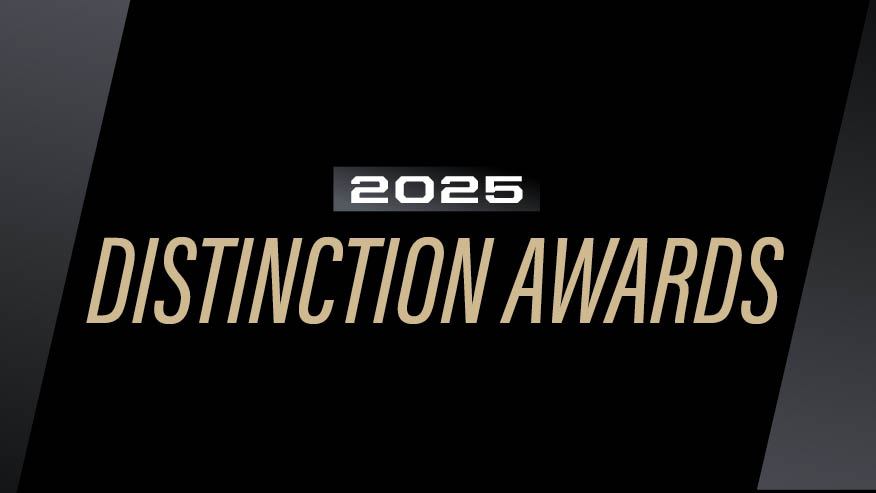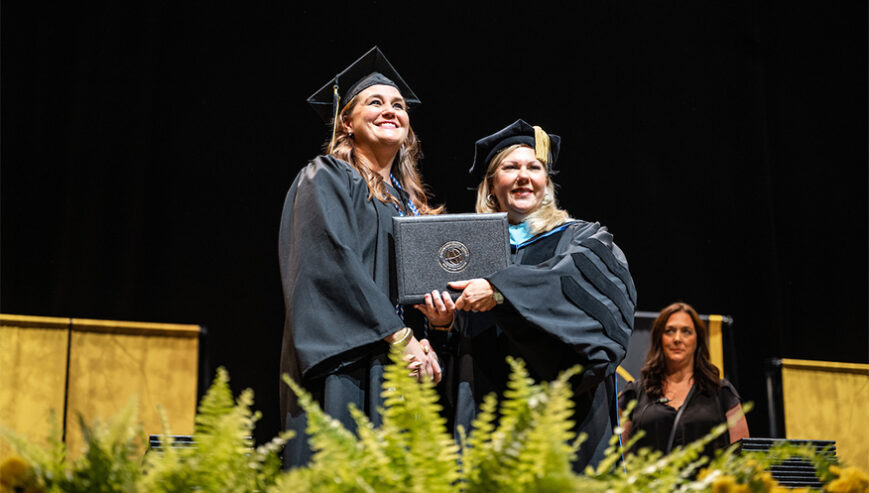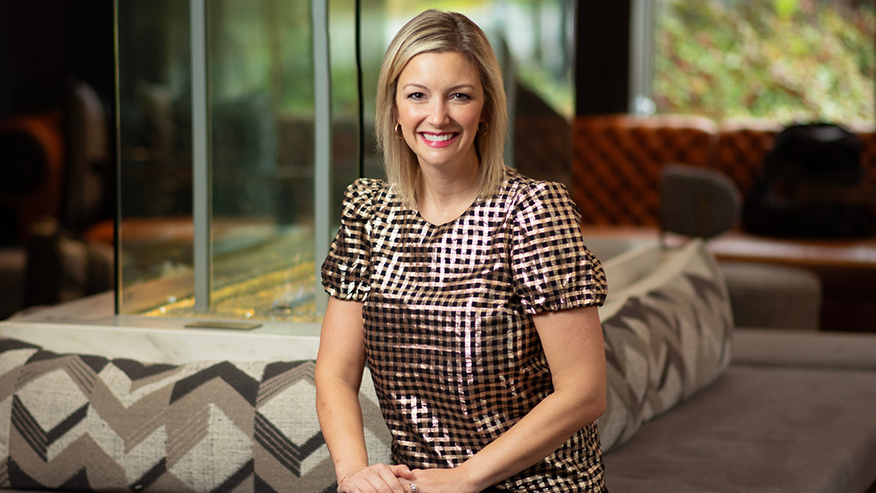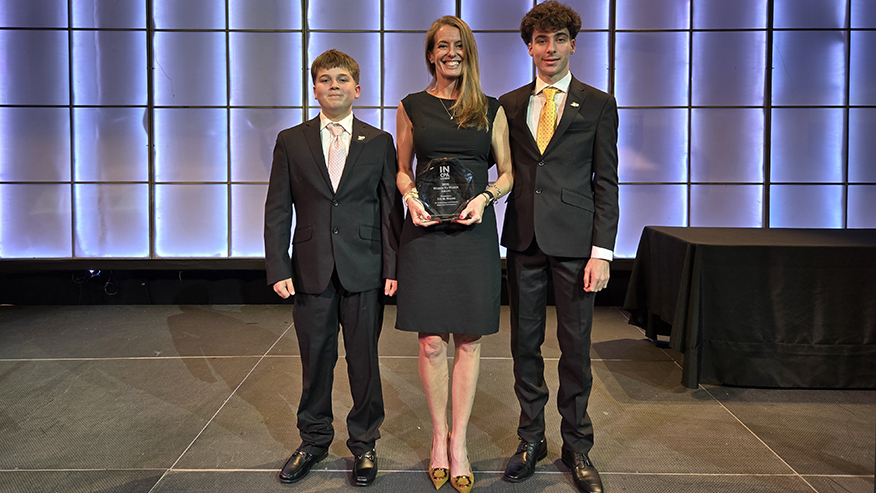Purdue Global Law School’s rural law course helps address legal deserts
Course focuses on less-populated areas in the country, providing better access to legal services

WEST LAFAYETTE, Ind. —
Dr. Amber Fort, a critical care physician who practices in North Dakota and North Carolina, is also a student at Purdue Global Law School with a passion for advocating for those who can’t advocate for themselves — a situation Fort says is particularly common in rural areas.
“It’s been frustrating me for a long time,” Fort said. “I thought that the best way to sit at the table with the people who make the rules would be to get the credentials myself.”
ADDITIONAL INFORMATION
Holly Carter sees it, too. She is a Purdue Global Law School alumna aiming to address the scarcity of legal professionals in her rural northern California community. Carter and Fort are using what they learned in a Rural Law Practice course (CL817) offered by Purdue Global Law School. Both say the information provided in the course is helping them understand the needs of their communities, especially in systems that the clients need assistance navigating. It also helps them maintain relationships with local communities.
“The work that I do right now really supports economic and ecological health; and I feel that, in rural areas especially, we need to have the connection to land and small communities and all the pros and cons that that brings,” Carter said.
The course, which begins another session May 1 and is open for registration, is designed to provide students with a foundation of knowledge to understand issues affecting rural law practice, including differences in demographics and socioeconomic status that affect potential clients.
Course topics include foundational concepts that impact rural areas such as agricultural law; farm succession planning and land use; barriers to accessing and providing legal services in rural areas; and skills practice for effectively providing legal services to rural clients.
The rural law course is three credit hours, has no prerequisites and is open to all students. Hannah Catt, who is teaching the course, says this class is important because it builds on Purdue University’s land-grant mission — that agriculture and rural communities are fundamental to the institution’s past, present and future. Purdue Global is Purdue’s online university for working adults.
“I hope to have students in the course from all backgrounds — those who grew up in rural towns and want to serve them with their legal education, and those who’ve never set foot on a farm but want to gain an understanding of the unique needs of rural clients,” Catt said. “Really, it comes down to exposure and helping students see legal practice from a new perspective — one that is not touched on by most JD programs.”
Fort and Carter said the lessons learned during this course are invaluable in preparing law students to understand the lives and needs of those in less-populated areas.
“It was an interesting look at national regulations, state regulations in different areas,” Carter said. “It touched on so many different areas, and then highlighted how practice might be different for rural attorneys. It felt very pertinent to what I’m doing. I appreciate that Professor Catt brought those things up in a way that was always interesting, was neutral and yet highlighted the importance of federal and state environmental and labor law impacts on rural communities, now and into the future.”
The differences in rural law settings are what stood out the most for Fort.
“I learned that rural law, much like rural medicine, is an entirely different situation from city law or corporate law, international law or any other kind of branch of law,” Fort said. “The things that people need in rural communities are different from what most people in cities need, and access to services is different.”
According to the American Bar Association, 40% of rural counties and county-equivalents average fewer than 1 lawyer per 1,000 residents — something Catt said is important for Purdue Global Law School to address. (Nationwide, the average is roughly 1 lawyer per 250 residents.)
“Rural communities are so integral to every state in different ways — culturally, economically, even politically,” Catt said. “As attorneys, we are trained to think critically and creatively to solve problems, so we should apply those skills to the rural attorney shortage as well.”
Carter and Fort found that they have been able to immediately apply the knowledge gained from Catt’s course, along with other law courses at Purdue Global.
“I’ve worked mostly with state agencies in California,” Carter said. “While taking this course, looking at the issues in legal deserts with the Bureau of Indian Affairs and Bureau of Land Management, along with things like the Clean Water Act and Clean Air Act and how they affect farms, have benefited me in my work.”
Communities, rural law and rural medicine often are interconnected in ways that can’t be seen, Fort said.
“I hope to find a way to operationalize that expertise acquired in rural areas,” Fort said. “Professor Catt was really good at connecting various aspects of the law — what happens with food and agriculture law and things like that — that you would think wouldn’t have very much impact in a world such as mine, but it really does.”
Launched in 1998, Purdue Global Law School was founded as the nation’s first fully online school. The online option provides students the flexibility to balance classes, work and family while being able to stay in their communities. Because Purdue Global Law School does not incur the costs of maintaining a physical campus, it is able to offer total program tuition for approximately one-third of the cost of traditional law schools.
About Purdue Global Law School
Purdue Global Law School is part of Purdue Global, the public, nonprofit, online school for working adults backed by Purdue University. Founded in 1998, Purdue Global Law School was the first to offer students a traditional law school program in an affordable, online format. For more information, please visit PurdueGlobalLawSchool.edu.
Media contact: Adam Bartels, adam.bartels@purdueglobal.edu
Sources: Hannah Catt, Amber Fort, Holly Carter



